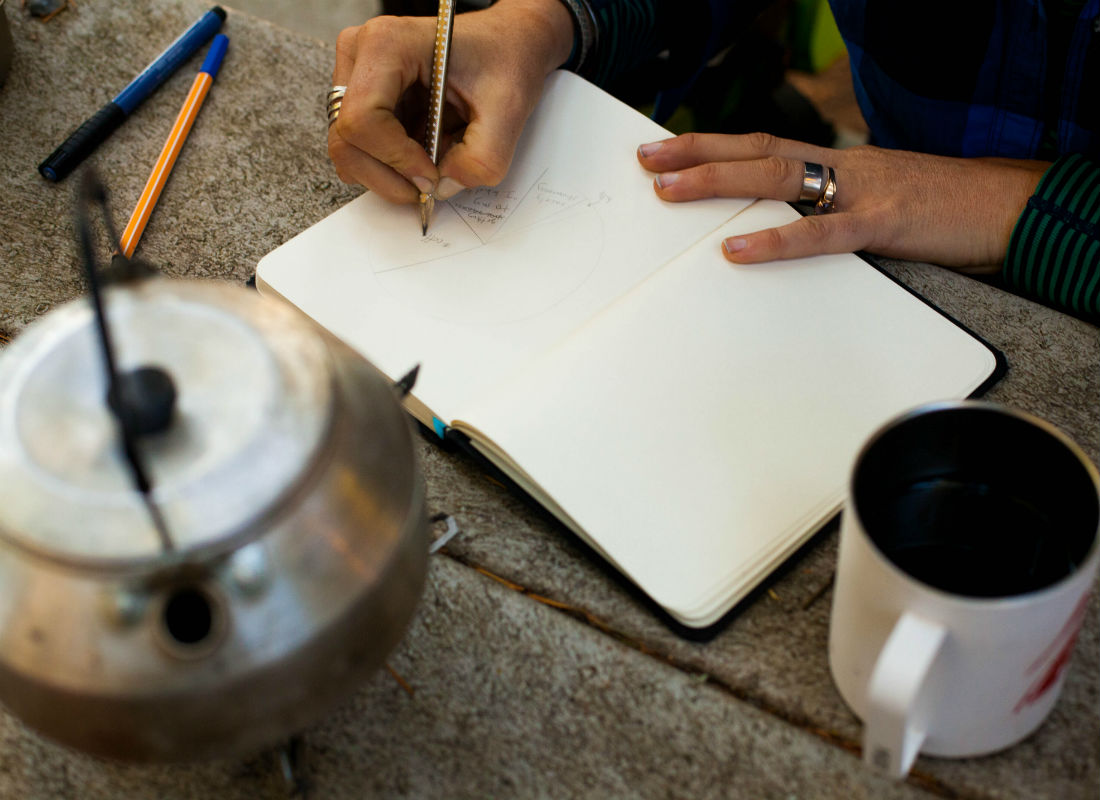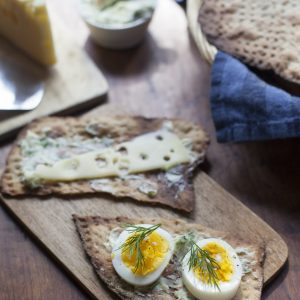What does it mean to live in balance? In balance with ourselves? In balance with our community? In balance with the environment? Wellness often focuses on our personal well-being, but our own well-being is impacted by that of those around us. If a community suffers, so does the individual. Finding balance is not just about finding it for ourselves, but finding balance so others may live well, too.
In Sweden, there is the concept of “lagom.” The word has no direct English counterpart, but it roughly translates to “just enough.” In other words, not too much, not too little, just the right balance in between. This concept plays out in all aspects of Swedish culture, from food to work. To have a lagom approach to the world around us is to navigate between the extremes, it is to find contentment in what we have and who we are today, and it is about thinking of how our own lifestyle impacts that of our community’s.
The word “lagom” has old roots, originating from an old form of the word “lag,” which in Swedish means “law” or “team.” “Laguhm” essentially meant “according to the law,” in other words, proper and suitable behavior within a society. Today, that original meaning has modernized, but it still carries the same social impact, that lagom is the right amount of something for both you and the people around you. Lagom is the sweet spot where there is a balance of individual contentment and community wellbeing.
I like to think of lagom as the inspiration for avoiding extremes. In the United States, we live in a society that loves extremes. We function under a “go big or go home” mentality, that what we want as individuals comes above all else, no matter how much we have to extract and destroy to get there. We work long hours, rarely taking vacation, we strive to be the best version of ourselves, the one that looks great to the outside world, and we go from one task to another, reveling in how “busy” we are. But that fast-paced lifestyle comes at a cost. We are stress, strained and burned out, not to mention what this consumer-driven culture has done to our environment. So how do we make a change? How do we incorporate a more lagom approach? Here are a few ways of cultivating balance in your everyday life.
Allow ourselves to be “just enough”
We live in a world of “I should.” Inundated with media images and glorified social media posts, we are inundated with what the “best” version of ourselves could look like. I should work out more. I should socialize more. I should eat better. I should make more money. I should be traveling. I should [insert any aspirational activity here]. Most often, these culturally imposed ideas of what we should do don’t become sources of inspiration for moving forward and developing as a human being. Instead, they become obstacles. They push us into a social competition leaving us feeling exhausted and empty. Having a more lagom approach means allowing ourselves to be just enough in this moment in time, that our past selves have gotten us to where we are and we’re not necessarily sure what our future selves will bring, but that we focus on finding contentment with who we are today. Think about it in terms of positive affirmations, replacing “I should” with “I am.”
Take breaks
When it comes to American work culture, we often have a “more is better” attitude, if we cram in as many hours of work as possible, we’ll come up with the best results. Not true. Many studies have shown to work well, we also need to take breaks. Why do you think Swedes have their beloved fika, the quintessential coffee break? It’s a time to step away from work and the computer, and let the brain recalibrate. It also gives the brain “white space,” which we need for creative thinking and problem solving. I once had a Swedish man come to a book talk I was giving about lagom and during the Q&A, he brought up the fact that he had worked at an engineering firm. He noted that the best, most ingenious ideas and projects they had worked on were always dreamt up over fika. Good excuse for a coffee break, right?
Making time for creativity
As humans, we have always been creating. Whether it’s art, food or houses, creating is a human act, yet we often think of creativity and creative thinking as something just artists or writers do. But creative thinking is something we all need in our everyday lives. It’s the thing that allows us to problem solve, to find connections between things. Creativity is like a muscle and just like we don’t get off the couch and run a marathon without training, we don’t go from no creative practice to creating a master work overnight. Creativity takes work. Make some time in your daily routine for a creative task that keeps those creative muscles working.
Enjoying nature on a daily basis
Outdoor pursuits are often framed in “extremes:” the longest hike, the highest climb, the fastest ride. But these extremes can pull us away from the benefits of the outdoors in the first place. A daily dose of nature is better than one in big doses on a rare basis. Take a walk. Eat your lunch outside. Spend time investigating the local flora and fauna. Do you know the names of the trees and plants in your own backyard? We often look to sweeping vistas and open-wide landscapes for inspiration, but the good stuff can often be found in the small things in between.
Focus on process over product
As a culture, we are product driven. We love the end result. But what if we spent more time appreciating the process? Think about a long hike. Sure, the summit may have been the “goal,” but what about the conversations and discoveries along the way? In whatever you doing, encourage yourself to be less focused on the end product and more focused on the process of getting there. Life isn’t a series of checking off lists, it’s an ongoing process of experiences, one flowing into the next. And if we can spend more time finding contentment in those experiences, in the small moments of the everyday, we can start to bring back a little more balance.
Images courtesy of Anna Brones.
xx Anna Brones






